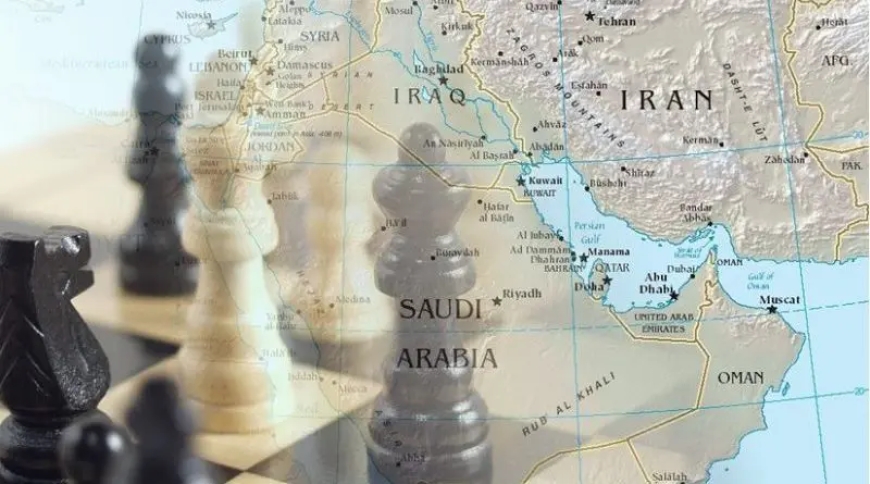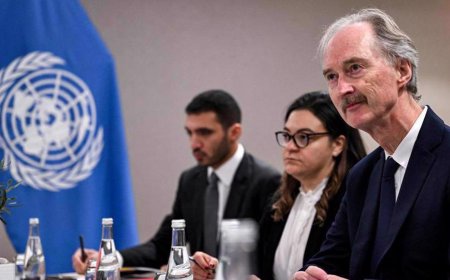The Geopolitical Chessboard of Syria: Why Iran Emerges as the Ultimate Victor
The rapidly evolving landscape of the Middle East demands vigilance from all regional players. In this volatile situation few developments have been as pivotal as the fall of Bashar Assad's government in Syria and the ensuing power vacuum. The intricate web of alliances betrayals and ambitions that facilitated this shift illuminates a deeper truth: while Western powers and their regional allies have scrambled for hegemony it is Iran that stands as the resilient and strategic victor in this multifaceted geopolitical game.

By: A. Mahdavi
The rapidly evolving landscape of the Middle East demands vigilance from all regional players. In this volatile situation few developments have been as pivotal as the fall of Bashar Assad's government in Syria and the ensuing power vacuum. The intricate web of alliances betrayals and ambitions that facilitated this shift illuminates a deeper truth: while Western powers and their regional allies have scrambled for hegemony it is Iran that stands as the resilient and strategic victor in this multifaceted geopolitical game.
The overthrow of Assad’s government was not a spontaneous event it was the culmination of years of planning by Syria's adversaries. Western intelligence agencies in concert with neighboring countries orchestrated a sinister campaign to dismantle the Syrian state. Chief among the regional actors was Turkey whose motives ranged from preventing the influx of Syrian refugees and securing its southern borders to installing a puppet government in Damascus aligned with its vicious aspirations.
Turkey's fingerprints on the Syrian crisis became evident with the active involvement of its intelligence apparatus supplying the Syrian opposition with weapons logistics and intelligence. The collaboration was neither isolated nor improvised. A well-defined division of labor emerged among Turkey the United States Britain Qatar and even Jordan each aligning their efforts to expedite Assad’s fall. Israel too found itself in an unspoken convergence of interests with Turkey amplifying the collective assault on Syria. NATO, meanwhile played a critical yet understated role providing logistical and training support that enabled Turkey to punch above its weight.
Yet, the ambitions of Turkey's Erdogan extended far beyond Syria. Erdogan's vision of resurrecting the Ottoman Empire and positioning Turkey as a global power--rather than merely a regional player--shaped his interventions. However; such ambitions are fraught with risks not least the possibility of alienating Turkey’s Western allies. History has shown that the West’s loyalty to its so-called allies endures only as long as mutual interests align. Should Turkey's aspirations clash with Western agendas Erdogan may find himself navigating treacherous waters without the lifeline of Western support.
The euphoria of Turkey’s momentary victory belies the formidable challenges that lie ahead. The Kurdish question looms large particularly as Kurdish forces ---known as the Syrian Democratic Forces (SDF)-- in northeastern Syria remain a focal point of American protection. Moreover; the inability to stabilize Syria or establish a tenable and independent government will haunt Turkey and its coalition of terrorist gangs. Economic dependencies such as reliance on Syrian oil for energy and infrastructure add another layer of vulnerability.
In this intricate tableau of shifting alliances and strategic gambits Iran emerges as the ultimate victor a steadfast player whose vision transcends transient victories. Unlike Turkey's ephemeral ambitions Iran’s strategy is underpinned by a long-term commitment to regional stability and resistance against Western hegemony. While Turkey expended resources in a high-stakes gamble for supremacy Iran solidified its influence in Syria through consistent support for the Syrian people within a clear ideological framework that resonates with millions in the region.
Iran’s unwavering backing of the Syrian nation even during its darkest hours has earned it not only respect but a pivotal role in shaping Syria’s future. Where Western powers and their regional collaborators sought chaos Iran championed sovereignty. As Turkey grapples with the complexities of its overreach and as the West recalibrates its alliances Iran’s calculated patience and principled stance ensure that it remains indispensable to the region's geopolitical equilibrium.
Ultimately the Syrian crisis serves as a testament to the enduring strength of Iran's strategic foresight. The West and its allies may have sought to redraw the map of the Middle East but it is Iran that has emerged as the anchor of resistance and the only supporter of the Palestinian cause. In a region where Turkey gains Pyrrhic victories Iran’s long-term vision affirms its role as the real arbiter of regional stability and peace. The unfolding events may still hold surprises but one thing is clear: the ultimate victory belongs to Tehran.













































